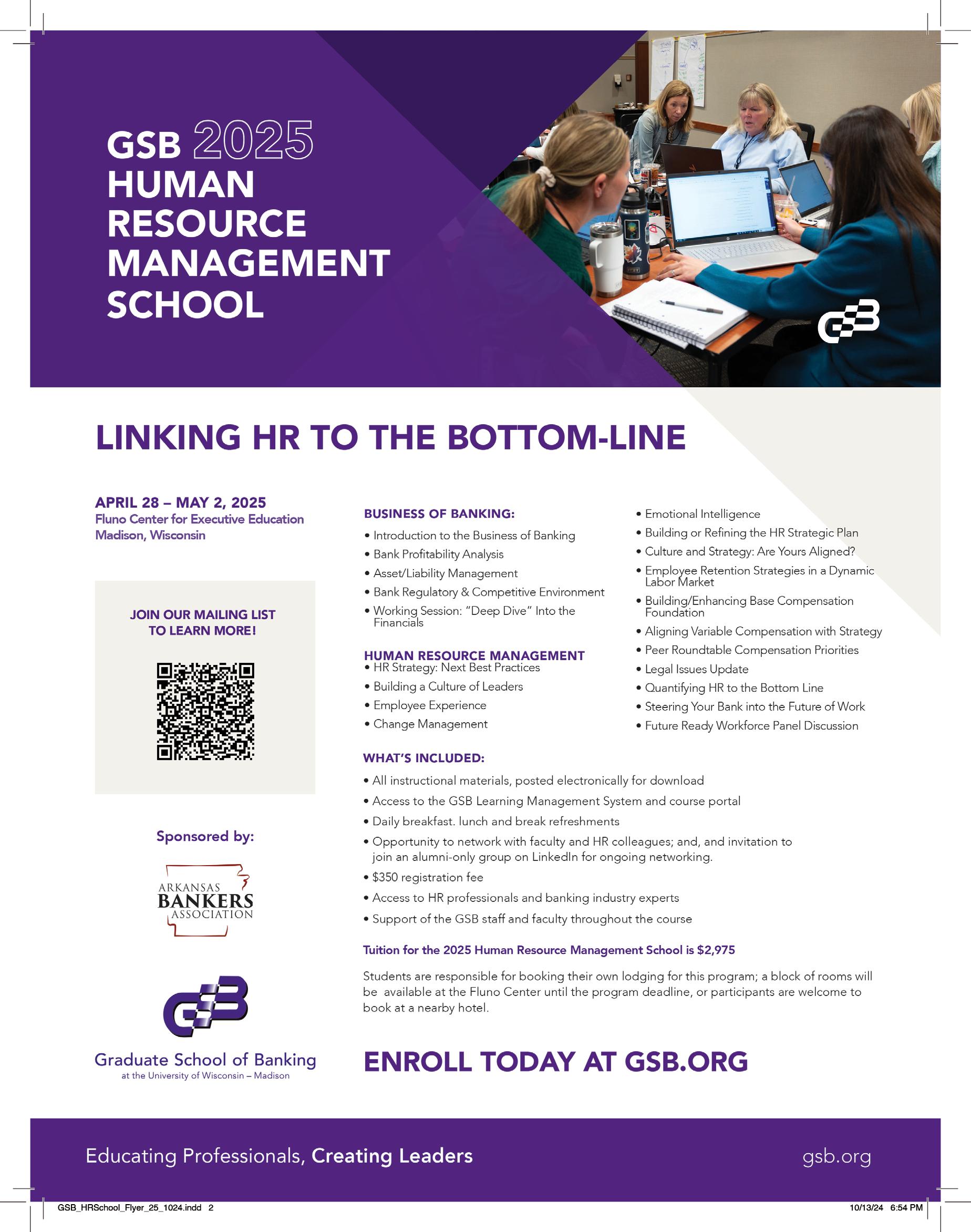
2 minute read
HABITS OF SUCCESSFUL YOUNG PROFESSIONALS
Ian Bryan | Chairman | Emerging Leaders Section
In the competitive world of banking, young professionals often focus on technical skills. However, developing a leadership mindset early can differentiate emerging leaders. Cultivating specific habits and adopting the right strategies will help pave the way for longterm success. Here are key practices young professionals can embrace to build a strong leadership foundation.
1. MASTER TIME MANAGEMENT
Effective time management is crucial for leadership. As a young professional, learning how to prioritize tasks and meet deadlines is essential. Poor time management leads to burnout, while managing time well fosters productivity, trust, and accountability—key traits of leadership.
Use tools like to-do lists or time-blocking to stay organized. Delegate when appropriate and focus on tasks that align with your priorities. These practices will improve efficiency and help you develop discipline for a leadership role.
2. COMMIT TO CONTINUAL LEARNING
Great leaders never stop learning. Emerging professionals should adopt a growth mindset, constantly seeking opportunities to expand their skills. This includes formal education, such as certifications, and informal learning, such as reading industry books or attending conferences.
In banking, staying informed about trends in fintech, regulatory changes, and emerging technologies helps you remain relevant and adaptable. Continual learning is key to leadership success in an ever-changing industry.
3. SEEK FEEDBACK AND ACT ON IT
Successful leaders value feedback and use it to grow. Constructive criticism reveals areas for improvement, helping young professionals advance. Rather than fearing feedback, view it as a chance to improve. Make it a habit to regularly ask for feedback from colleagues or mentors and act on it. This shows you are committed to growth and development and demonstrates humility—a vital leadership trait.
4. TAKE INITIATIVE AND OWN YOUR PROJECTS
A key habit that distinguishes great leaders is the ability to take initiative. Young professionals should actively seek opportunities to go beyond their duties and take ownership of projects. This shows you are invested in the organization’s success and capable of leadership.
Don’t wait for instructions—look for ways to improve processes, contribute to team goals, and identify areas for growth. Taking initiative demonstrates problem-solving skills and positions you for leadership roles.
5. BUILD STRONG RELATIONSHIPS AND NETWORK
Leadership goes beyond technical skills; it’s also about building relationships. Start early by cultivating a network of mentors, colleagues, and industry professionals. Strong relationships provide support, advice, and new opportunities.
Engage in industry events, connect on LinkedIn, and collaborate with people outside your immediate team. A broad network enhances your professional reputation and opens doors for career growth.
6. STAY RESILIENT IN THE FACE OF CHALLENGES
Resilience is a hallmark of great leaders. In banking, setbacks are inevitable, but how you handle them defines your leadership potential. Developing resilience means staying optimistic, adapting, and learning from mistakes.
When faced with challenges, reflect on the lessons they offer and use them for growth. Resilience will help you persevere through difficult times and emerge stronger both personally and professionally.
Conclusion
Developing a leadership mindset early is about more than just aiming for a leadership position; it’s about adopting habits and strategies that shape you into an effective leader. By mastering time management, committing to learning, seeking feedback, taking initiative, building relationships, and staying resilient, young professionals can set themselves up for long-term leadership success. Start cultivating these habits now, and leadership opportunities will follow.






